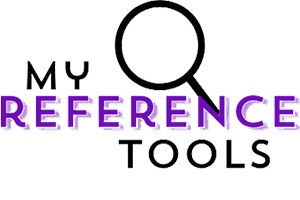Unlock Your Potential with Corporate Tuition Reimbursement

Corporate tuition reimbursement is one of the most valuable yet underutilized benefits available to professionals today. Organizations are increasingly recognizing the value of supporting employee education and skill development, offering these programs as a way to invest in their workforce. For employees, this opportunity provides a chance to expand their knowledge and expertise, all while alleviating the potential financial burden of further education. By taking advantage of corporate tuition reimbursement, you can unlock new career possibilities and position yourself for lasting success.
Below, we’ll explore the key advantages of tuition reimbursement, real-life examples of professionals who’ve benefited from it, and actionable tips to make the most of this opportunity. Whether you’re looking to pursue a degree, earn certifications, or simply enhance your skills, this guide will help you leverage tuition reimbursement to its fullest potential.
Key Advantages for Professionals
1. Reduced Financial Barriers
Educational expenses can be a significant hurdle for many professionals. Tuition reimbursement programs help lower or even eliminate these financial barriers. Typically, companies cover all or part of the costs associated with degrees, certificates, or specialized courses, depending on their policies.
For example, Google offers up to $12,000 annually for employees pursuing relevant degrees, while Starbucks covers 100% of tuition for a bachelor’s degree through its partnership with Arizona State University. These programs are designed to ensure that employees do not need to shoulder the entire financial burden.
By taking advantage of tuition reimbursement, professionals can focus on learning and growing rather than fretting over how to afford further education. This makes opportunities like earning MBAs or specialized certifications within reach for many who may otherwise deem them unaffordable.
2. Career Growth and Advancement
Tuition reimbursement programs enable professionals to acquire new skills and qualifications, equipping them to advance in their careers. Whether you aspire to a leadership role or want to add specialized expertise to your resume, pursuing further education signals your ambition and drive to employers.
For instance, if you’re an IT professional wanting to transition into a cybersecurity role, obtaining certifications like CISSP (Certified Information Systems Security Professional) can make you a standout candidate. Many companies will reimburse the associated costs when your chosen program aligns with business needs.
Additionally, continuing education can give you a competitive edge when internal positions open up. Employers tend to favor candidates who actively invest in their growth, as these individuals often demonstrate adaptability, critical thinking, and a willingness to take on new challenges.
3. Improved Job Security
The modern workplace evolves rapidly, and job security depends heavily on staying versatile and relevant. Employers need teams that can adapt to industry changes and meet emerging demands. When you expand your skill set, you become a more indispensable member of your organization.
Consider a marketing professional mastering data analytics through a reimbursed certification course. With the rise of digital marketing and AI-driven tools, this skill set ensures you’re not only staying relevant but also providing immense value to your company. This adaptability drastically reduces the risk of job redundancy while reinforcing your importance within your team.
4. Potential for Higher Earnings
Higher levels of education and advanced certifications often lead to increased earning potential. Research shows that employees with advanced degrees or specialized qualifications frequently command higher salaries. Tuition reimbursement accelerates your return on investment (ROI) by covering a portion (or all) of the upfront costs of education.
For example, according to the U.S. Bureau of Labor Statistics, professionals with a master’s degree earn approximately 18% more than those with a bachelor’s alone. Programs like tuition reimbursement allow you to achieve those increases without taking on significant debt.
Further, in competitive industries like healthcare or technology, certifications can offer salary boosts almost immediately. A nurse adding a specialized certification in critical care can see an earnings jump, while a software developer with cloud-computing credentials like AWS Certification becomes more valuable overnight.
5. Increased Job Satisfaction
Many professionals experience frustration or stagnation in their careers due to a lack of challenges or growth opportunities. However, furthering your education can reignite your passion for your field. Learning something new introduces fresh perspectives, motivates you to tackle your work differently, and adds a renewed sense of purpose.
When companies support this growth through tuition reimbursement, employees often feel more valued and engaged. This mutual benefit positively impacts workplace culture and overall productivity. Employees are more likely to remain loyal when organizations demonstrate a commitment to their personal and professional development.
6. Networking Opportunities
Continuing education introduces opportunities to build connections with classmates, instructors, or other professionals in your field. These relationships can have long-term benefits, such as mentorship, collaboration opportunities, or even job offers.
For example, a business professional pursuing an MBA often interacts with peers working in diverse roles and industries. This exchange of ideas and experiences allows you to broaden your understanding of business practices and foster valuable partnerships. Your expanded professional circle could even help you tackle organizational challenges or explore innovative solutions.
Making the Most of Tuition Reimbursement
To maximize the benefits of tuition reimbursement, you must approach it with clear goals and a strategy that aligns with your career aspirations. Here are actionable steps to help you get started:
1. Understand Your Company’s Policy
Every organization has unique parameters for tuition reimbursement. It’s crucial to familiarize yourself with your employer’s guidelines to avoid missteps. Key details to explore include the following:
- Types of programs or degrees covered
- Reimbursement limits (often annual caps)
- Payment structure (e.g., upfront payments or reimbursed post-completion)
- Required grades or GPA for reimbursement
- Pre-approval or application process
For instance, employers may only cover courses directly related to your current role or future advancement opportunities. Understanding these specifics ensures you can confidently plan your education.
2. Align Studies with Career Goals
Select education paths that provide immediate and tangible value to your career. This alignment strengthens your reimbursement application and ensures that your efforts directly contribute to your professional trajectory.
For example:
- A human resources manager aspiring to specialize in diversity and inclusion may benefit from a course on workplace equity or certifications like SHRM-SCP.
- An accountant working toward a Certified Public Accountant (CPA) license can enhance their scope and earning potential.
By mapping your studies to your career goals, you’ll see faster and more meaningful results.
3. Maintain Clear Documentation
Keep detailed records of tuition payments, grades, receipts, and other program-related expenses. This careful documentation simplifies the reimbursement process and ensures compliance with your employer’s requirements.
For instance, companies often require proof of completion and a minimum grade threshold for eligibility. Submitting accurate and complete records can prevent delays and disputes in receiving your reimbursements.
4. Communicate with Your Manager
Openly discuss your educational plans with your manager or HR representatives. Explain how your chosen program benefits both you and the organization. Be prepared to articulate specific ways your enhanced skills can positively impact your role or department.
For example, if pursuing a data analytics certification, you might illustrate how your newfound skills will enable more efficient reporting or uncover insights to drive business strategies. This proactive communication builds managerial support and underlines your dedication to contributing to workplace success.
5. Explore Flexible Learning Options
Balancing education and work can seem daunting, but flexible program formats make it manageable. Consider online courses, night classes, or part-time degrees designed for working professionals. Programs catering to busy schedules are especially prevalent in fields like business, healthcare, and technology.
For instance, many universities now offer fully online MBA programs tailored for employed professionals, allowing you to progress at your own pace while maintaining your job commitments.
6. Seek Mentorship
Connect with colleagues who have previously utilized tuition reimbursement. Their insight can be invaluable in navigating the process, selecting programs, and balancing academic and professional responsibilities.
Additionally, mentors within your organization might offer guidance on how to align your education choices with broader company goals, ensuring continual growth and visibility.
7. Think Long-Term
Education is an investment in your future. While tuition reimbursement can offer immediate benefits like skill enhancement or promotions, the long-term returns are even greater. Your expanded expertise will open doors to opportunities that were previously out of reach, ensuring a rewarding career trajectory.
Take the time to visualize where you want to be 5, 10, or 15 years from now, and identify how furthering your education today can help you achieve those goals.
Final Thoughts
Corporate tuition reimbursement is more than just a financial perk; it’s a pathway to unlocking your potential and shaping your future. By leveraging this benefit, you can break down the barriers to education, grow your skills, and advance your career without incurring significant debt.
If your organization offers tuition reimbursement, take full advantage of this resource. Align your educational pursuits with your career ambitions, communicate your plans effectively, and stay committed to your development. By doing so, you set yourself up not only for a successful career but also for a fulfilling and impactful professional life. Don’t wait for opportunity to knock—create it through education.



